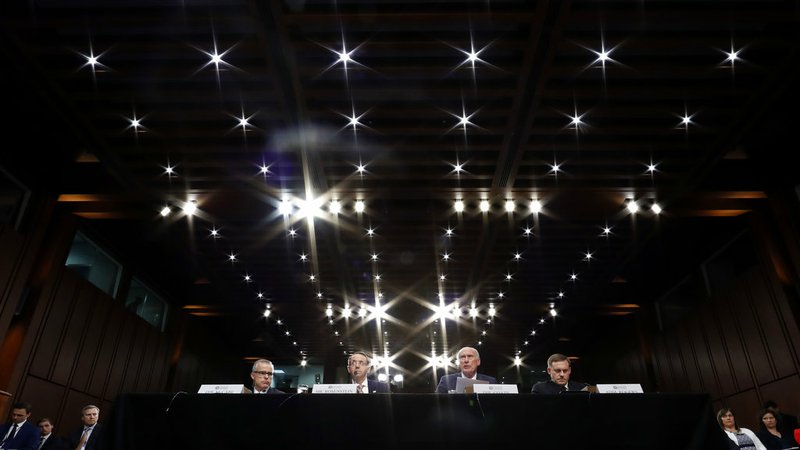WASHINGTON — The nation's intelligence chiefs, facing questions from Congress one day before former FBI Director James Comey provides his first public account of the events leading up to his firing, declined to describe conversations with President Donald Trump but said they had not been directed to do anything they considered illegal or felt pressured to do so.
Michael Rogers, the National Security Agency director, and national intelligence director Dan Coats largely ducked questions from senators Wednesday about whether the president had tried to influence investigations into Russia's election meddling and possible coordination with the Trump campaign.
"I have never felt pressure to intervene, interfere in any way for shaping intelligence in any way," Coats said at one point.
But he later demurred when asked whether he was prepared to say that he had never been asked to influence an ongoing investigation, saying, "What I'm not willing to do is to share confidential information that I think ought to be protected in an open hearing."
The questions from the Senate intelligence committee, at a hearing on surveillance law, were in response to news media reports that both Coats and Rogers had been asked by Trump to publicly state that there was no evidence of collusion between Moscow and the Trump campaign. Comey appears before the same committee Thursday.
The back-to-back hearings come as the White House grapples with the fallout from Comey's firing, which led to the appointment of a special counsel to take over the Russia investigation in an effort to prevent even the appearance of Oval Office interference.
Questions about Russia's role in the 2016 presidential election, and ensuing congressional and FBI investigations into Moscow's ties with Trump associates, have dogged the president since he took office.
Two other witnesses, acting FBI Director Andrew McCabe and Deputy Attorney General Rod Rosenstein, declined to discuss any aspects of the Russia investigation.
"We have a special counsel who is investigating," Rosenstein said, when asked about a memo he had written that the White House held up as justification for Comey's May 9 firing.
White House officials had weighed trying to block Comey from testifying by arguing that his discussions with the president pertained to national security and that there was an expectation of privacy. However, officials ultimately concluded that the optics of taking that step would be worse than the risk of letting the former FBI director testify freely.
Read Thursday's Arkansas Democrat-Gazette for full details.
